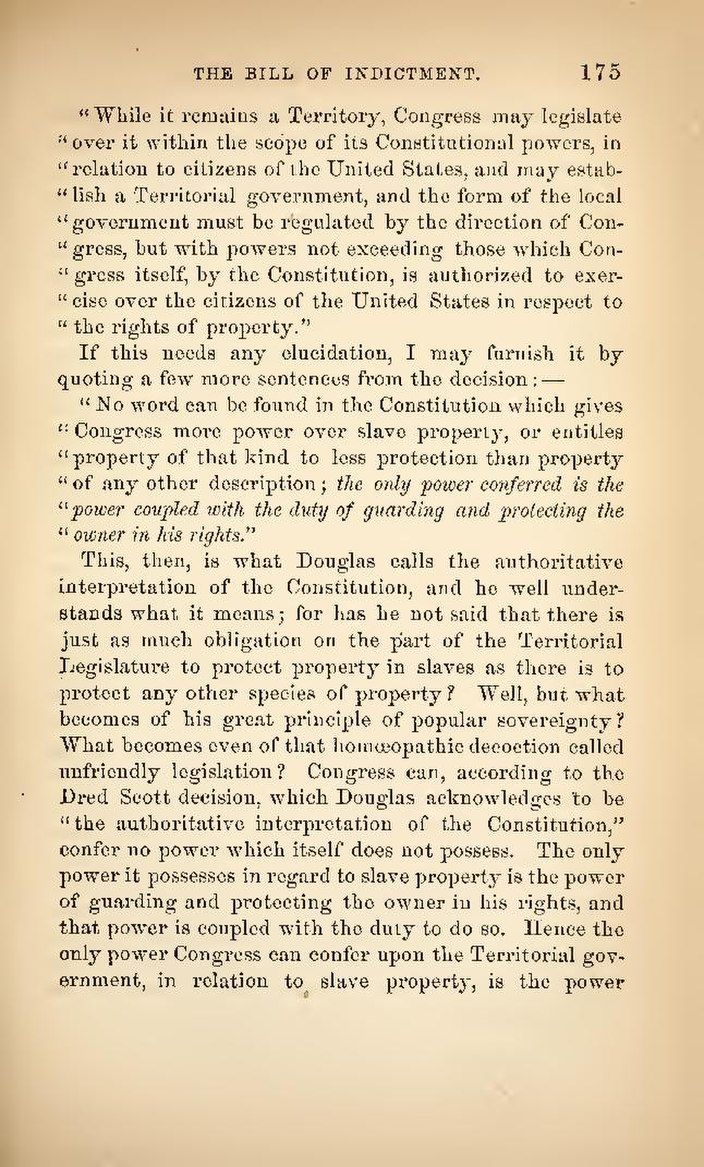“While it remains a Territory, Congress may legislate over it within the scope of its Constitutional powers, in relation to citizens of the United States, and may establish a Territorial government, and the form of the local government must be regulated by the direction of Congress, but with powers not exceeding those which Congress itself, by the Constitution, is authorized to exercise over the citizens of the United States in respect to the rights of property.”
If this needs any elucidation, I may furnish it by quoting a few more sentences from the decision:—
“No word can be found in the Constitution which gives Congress more power over slave property, or entitles property of that kind to less protection than property of any other description; the only power conferred is the power coupled with the duty of guarding and protecting the owner in his rights.”
This, then, is what Douglas calls the authoritative interpretation of the Constitution, and he well understands what it means; for has he not said that there is just as much obligation on the part of the Territorial Legislature to protect property in slaves as there is to protect any other species of property? Well, but what becomes of his great principle of popular sovereignty? What becomes even of that homœopathic decoction called unfriendly legislation? Congress can, according to the Dred Scott decision, which Douglas acknowledges to be “the authoritative interpretation of the Constitution,” confer no power which itself does not possess. The only power it possesses in regard to slave property is the power of guarding and protecting the owner in his rights, and that power is coupled with the duty to do so. Hence the only power Congress can confer upon the Territorial government, in relation to slave property, is the power
